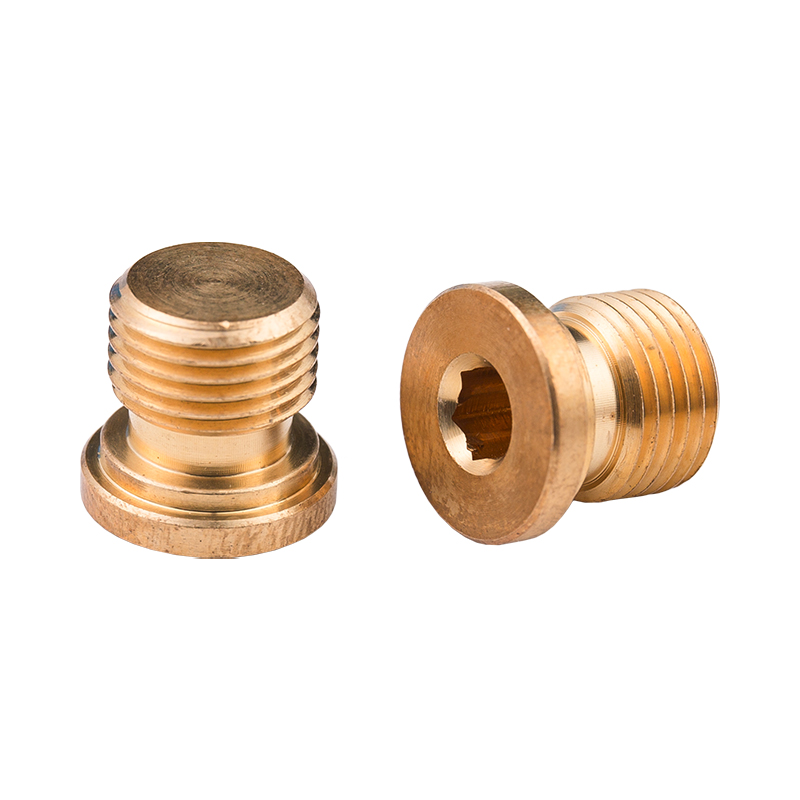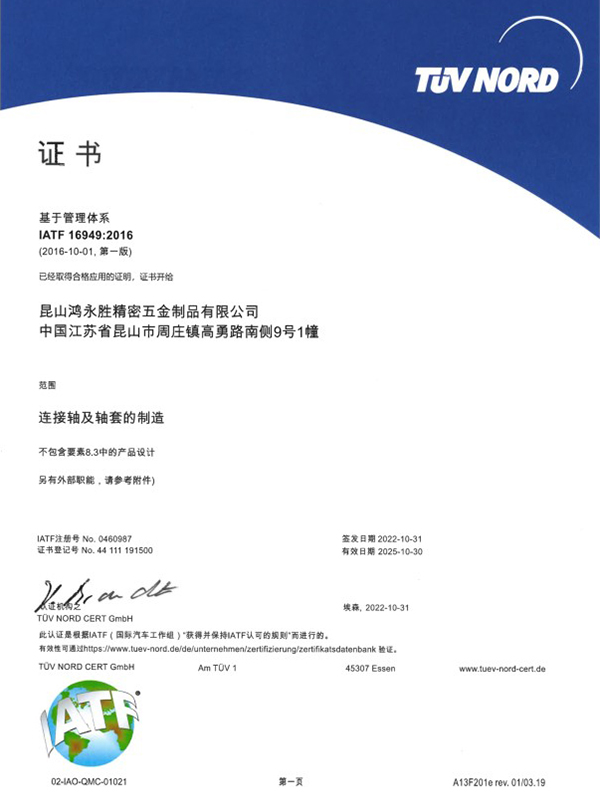บริษัทได้รับใบรับรองการจัดการระบบคุณภาพ ISO9001:2015 และ IATF16949:2016 จำนวน 2 ใบ
ปัจจุบันบริษัทให้บริการแก่ญี่ปุ่น สวีเดน สหรัฐอเมริกา สิงคโปร์ มาเลเซีย ฮ่องกง และสามเหลี่ยมปากแม่น้ำเพิร์ล และลูกค้าอื่นๆ อีกมากมายเพื่อให้บริการ ปัจจุบันลูกค้าหลักคือ Japan Sharp (SHARP) Japan SMC, พานาโซนิคของญี่ปุ่น (พานาโซนิค) รถยนต์สวีเดน VOVOL ฯลฯ การลงทุนในสินทรัพย์ถาวรทั้งหมดมากกว่า 30 ล้านดอลลาร์ ยินดีต้อนรับเพื่อน ๆ จากทุกสาขาอาชีพมาที่โรงงานเพื่อเยี่ยมชม ศึกษา ให้คำปรึกษา และมา! เรายินดีต้อนรับเพื่อนจากทุกสาขาอาชีพเพื่อเยี่ยมชมโรงงานของเรา ตรวจสอบ ปรึกษา และมาหาเราเพื่อดำเนินการตัวอย่าง
เรากำลังรอคอยที่จะสร้างความร่วมมือทางธุรกิจที่ดีกับคุณด้วยความไว้วางใจและการตอบแทนซึ่งกันและกัน!
-
{บทความ item="vo" cat="news" order="1" by="time"limit="4" child="1" no_p="0" no_search="1"
page_num="5"}
- {/article}
How do non-standard copper hexagon socket head sealing bolts differ from standard bolts in terms of functionality?
One of the primary differences is the sealing feature incorporated into the design of non-standard copper hexagon socket head sealing bolts. These bolts are specifically engineered to provide a secure seal against liquids, gases, or contaminants. This sealing capability makes them suitable for applications where preventing leaks or ingress of foreign substances is critical.
Unlike standard bolts, which are typically made from materials like steel, non-standard copper hexagon socket head sealing bolts are constructed from copper or copper alloys. Copper offers unique properties such as excellent conductivity, corrosion resistance, and malleability, which are advantageous in certain applications, particularly those involving electrical components or environments prone to corrosion.
Non-standard bolts offer a higher degree of customization compared to standard bolts. Customers can specify unique dimensions, materials, surface treatments, thread types, head shapes, and sealing mechanisms tailored to their specific requirements or application scenarios. This customization capability allows for greater versatility and adaptability in various industries and engineering applications.
Due to their sealing capability and customizable nature, non-standard copper hexagon socket head sealing bolts are often used in specialized applications where standard bolts may not suffice. These applications can include electronic devices, aerospace equipment, high-precision machinery, and any scenario where maintaining a secure seal is essential for operational integrity and performance.
What are the typical strength characteristics of non-standard copper hexagon socket head sealing bolts?
The typical strength characteristics of non-standard copper hexagon socket head sealing bolts can vary depending on factors such as the specific alloy used, the manufacturing process, and any additional treatments applied to the bolts.
Copper and its alloys generally have lower tensile strength compared to steel. While steel bolts typically have tensile strengths ranging from 400 MPa to 1000 MPa or more, copper bolts may have tensile strengths ranging from 200 MPa to 500 MPa depending on the alloy and temper.
Similarly, the yield strength of copper bolts is typically lower than that of steel bolts. Yield strength for copper bolts can range from 100 MPa to 400 MPa, again depending on the specific alloy and temper.
Copper and its alloys are known for their excellent ductility, meaning they can deform significantly before fracturing. This property is advantageous in applications where the bolt may experience bending or deformation under load without failing catastrophically.
Copper bolts generally have lower fatigue strength compared to steel bolts. They may be more prone to fatigue failure under cyclic loading conditions, particularly if they're not properly designed for the specific application and loading conditions.
One of the key advantages of copper bolts is their excellent corrosion resistance, especially in certain environments like marine or chemical processing applications. This resistance to corrosion can contribute to the overall durability and longevity of the bolts in service.






